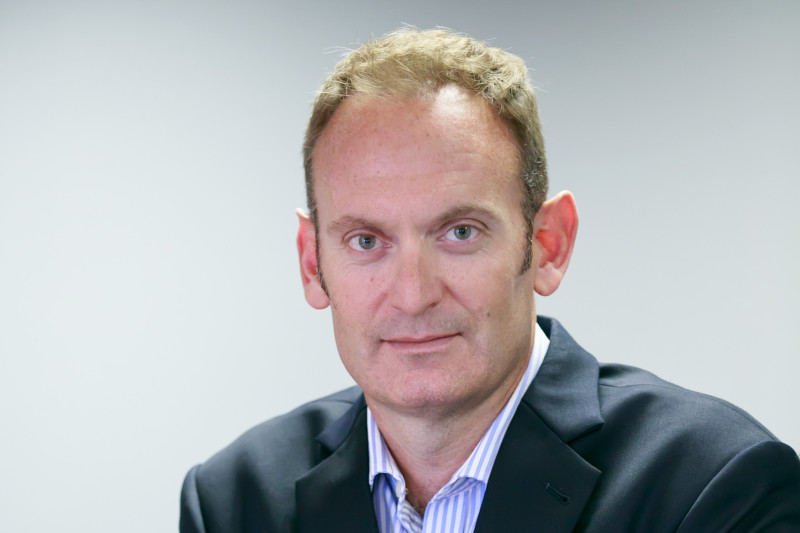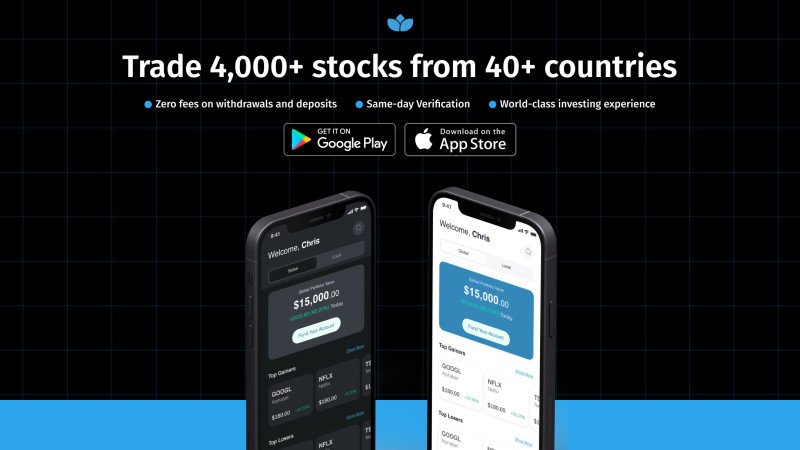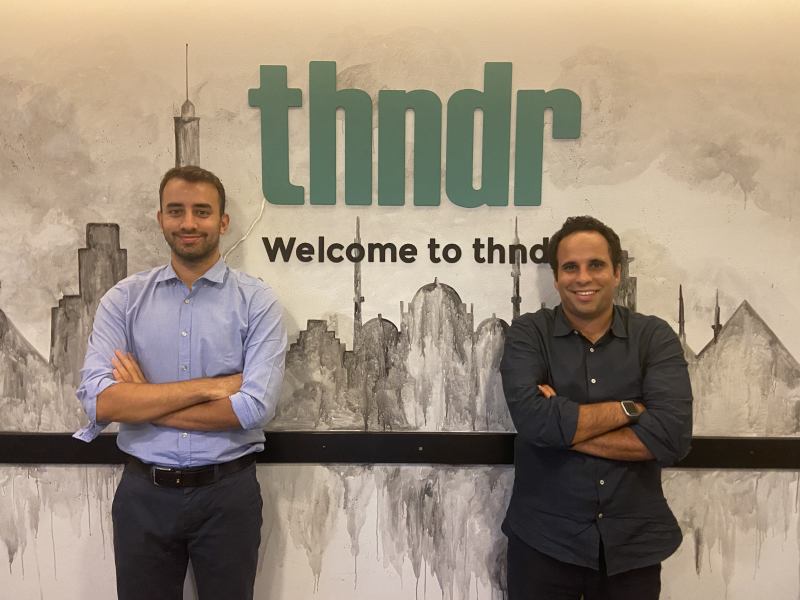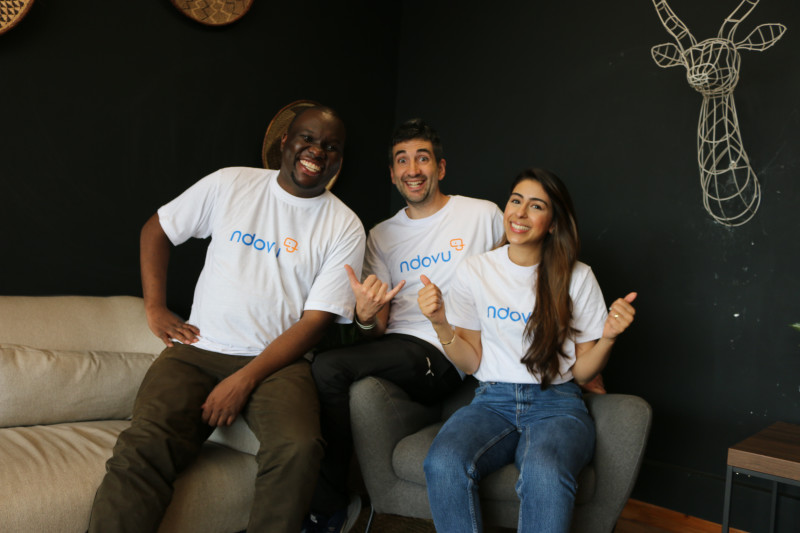- Iterate
- Meet The Team
- Four Companies Shaping Africa’s Wealthtech Ecosystem
Four Companies Shaping Africa’s Wealthtech Ecosystem
Table of contents
Recently we’ve seen the wealth management industry diversify significantly from just having high-touch products geared towards institutional investors and high net worth individuals, to offering more accessible products to a wider range of people. The Org spoke to four dynamic players in the wealthtech scene in Africa about the nascent industry that is teeming with opportunity, and the roles these startups are playing in promoting financial inclusion on the continent.

Recently we’ve seen the wealth management industry diversify significantly from just having high-touch products geared towards institutional investors and high net worth individuals, to offering more accessible products to a wider range of people.
Through technology, more players have been able to meaningfully participate in the industry by building platforms that have made investing easier and more accessible, leveraging the power of artificial intelligence to offer roboadvice. There has also been a growing interest in passive versus actively managed funds and the ability to provide intuitive user experiences on applications.
The trading app Robinhood has been making waves with its recent debut on the NASDAQ, a move that saw its market value jump from $29 billion to $65 billion within a short space of time. Even incumbents such as JP Morgan Chase realize that the tide is turning. To accelerate its market entry into the U.K. it bought Nutmeg a robo advice platform, for about $971 million, automatically acquiring around 140,000 clients.
While the investment landscape in Africa has similar parallels to that of developed economies, there is room for market players to leverage consumer demand for wealth management products that are more digitally accessible and easy to use. Traditional asset managers have been successful, but there is a growing opportunity to establish strong contenders, when it comes to digital investing platforms that have a great appeal to young tech savvy investors.
The Org spoke to four dynamic players in the wealthtech scene in Africa about the nascent industry that is teeming with opportunity, and the roles these startups are playing in promoting financial inclusion on the continent.
EasyEquities
South African serial entrepreneur Charles Savage established EasyEquities in 2015 after seeing 21 years earlier how the internet could radically disrupt access to financial services for ordinary South Africans.
The gap in the market for him was being able to leverage technology to democratize access to investments. “When we started over six years ago, the market was very sophisticated and big brands that offered wealth management products serviced less than 1% of the population who are primarily in the upper income segment,” he said.

The primary shortcoming, according to Savage, was that the traditional wealth management industry had developed sophisticated access points to financial services by building products in boardrooms that spoke directly to the people sitting at those tables. “The assumption that was made is that South Africans were bad savers and the truth is they are not,” Savage said. He made it his mission to find a way to make investing easy and enjoyable, by eliminating all the friction points.
Savage recognized that in order to create the promised democratization, he needed to figure out how fractional shares worked; first-time investors, he thought, would want to buy brands they loved, and single stock of a company like Amazon valued at $3,000 was not affordable for many.
“I had sleepless nights trying to figure out, what are we going to do, but using Google I discovered how fractional shares worked in America and realized that they had actually been in existence since the stock exchange was developed, but no one had taken the opportunity to digitize the purchasing of fractional shares,” Savage said. EasyEquities was the first company in the world to do it and patented the process in South Africa.
Savage shared how customer advocacy has been a key driver for the company's growth. “Our consumers are becoming centers of influence in their own communities, telling their friends and family how easy it is to just get started, and it’s been amazing seeing how it plays out on social media,” said Savage.
EasyEquities currently services over 1.1 million registered accounts and about 40% of them have converted into being real investors. The key to scale has been to forge various relationships with distribution partners like Capitec Bank and Satrix, amongst others. Savage is building the company with long-term ambitions to replicate the success in South Africa in other parts of the continent and globally. “The real magic is not what we can do in 3-10 years, but more so about what we can do in the next 100 years, as investing is a long-term game. It’s about looking back and people reflecting on how they created all this wealth in the country over time through EasyEquities,” said Savage.
Ndovu
Ndovu was co-founded by Radhika Bhachu in 2019 upon her return home to Kenya after spending several years in the U.K. studying Mathematical Science at University of Nottingham and working at Black Rock’s pension fund business unit. She assumed various roles within the business, such as managing a book of $3 billion in assets under management which included pension fund schemes, corporates and investment platforms. The role gave her a lot of lessons in managing the operations of an investment platform which were valuable lessons towards building Ndovu.
Bhachu was interested in creating value in the Kenyan pension fund market, which she thought was far too small at a value $13 billion with 80% of the funds coming from institutional investors and a few corporates. Her interest shifted to the retail investment market, which is very nascent in Kenya. Bhachu had a growing interest in understanding how she could penetrate it with a compelling, affordable offering. Bhachu met her co-founder Rogito Nyangeri, while doing some analysis into the savings culture amongst Kenyans. Nyangeri has over 16 years’ experience in financial markets in Kenya, having worked with regulators, and understands consumer behavioral patterns in Sub-Saharan Africa.
Bhachu said a key insight the pair found in their analysis and research to build a retail investment platform in Kenya was that people were not well informed about the starting points to investing. The process was too cumbersome with fees and minimums being too high.
They also dug a little deeper to find there is currently $85 billion sitting in bank accounts in Sub-Saharan Africa, which could be invested to provide returns above inflation. Meeting the regulatory requirements was a key priority for Ndovu. “We worked with the regulators to understand the key things that mattered to them, in terms of monitoring and governance. We found a lot of loopholes in the process which they have since improved upon and Ndovu is now regulated after four months, a process that tends to take much longer,” Bhachu said.
Ndovu targets primarily middle to high income clients, given the level of education that is required around investing, but a lot of the customers coming onboard are middle to low-income customers. She said this was because digital adoption was high in East Africa thanks to digital money transfer service M-Pesa, compared to Nigeria where the digital adoption was concentrated in the larger cities.
Currently, Ndovu has 170 users but it is hoping to attract more than 220,000 in three years’ time through expansion into two other countries that show the same product market fit as Kenya. Its assets under management stand at over $3 million across this small user base.
“My hope is that people can stop me in the street one day and outline that because of you I was able to send my child to a better school or buy a home. The real vision is to become an end-to-end provider of financial education and investment products. If we can help people create wealth responsibly, I will be very happy,” Bhachu said.
Chaka
Chaka was founded in 2019 with a mission to offer digital investing to more African countries and to serve as a bridge for Africans to access global markets. CEO Tosin Osibodu wanted to leverage his experience working in e-commerce, banking and ed-tech, and his curiosity about how the development of digital infrastructure could radically impact how people access financial markets.
His co-founder Bolanle Osibodu has experience in wealth management at Barclays and HSBC. The pair believed they could tap into a potential addressable market of about 2 million people to give the local population and the Nigerian diaspora channels to invest in local and global markets seamlessly, with direct access and in a visually engaging way. They also recognised how the perception of corruption in Nigeria had limited Nigerians' access to financial products, but knew that digital technology within a regulated environment could solve this.
Earlier this year the Nigerian Securities and Exchange Commission issued Chaka with a digital stock trading licence, making it the first fintech with such authorization in Nigeria. The entity raised $1.5 million in pre-seed funding led by Breyer Capital amongst other established venture capital firms. The founders followed quite a strategic approach when looking for investors, by seeking those who had a good understanding of the company’s operating model and who were knowledgeable about fintech, together with being able to give them access to other global venture capitalists. Chaka went live with a direct-to-consumer model to prove to businesses that it had a viable product that could work within a B2B context, and so far it has attracted more than 150,000 downloads of the app.

The Nigerian Stock Exchange had its best performance in 2020, which was primarily driven by the demutualization of the Exchange to encourage retail investors to participate. This has served as a strategic advantage for Chaka in seeing how it can further lower the barriers to enable more people to participate in the stock exchange. “We are focused on enabling people to buy stocks like Apple or GT Bank to be just a click away,” Osibodu said.
Thndr
Investment platform Thndr was established in 2019 by ex-colleagues Ahmad Hammouda and Seif Amr who worked together at Uber Egypt and CI Capital. The trading and investment platform is a first of its kind in the MENA region, stemming from Amr and Hammouda wanting to leverage their experience in investment management and tech to build what they believe every human being should have access to the opportunity to grow wealth through investments.
They were accepted to participate in the Y-Combinator (YC) Summer 2020 cohort after obtaining a regulatory licence, and said their rationale to apply was to get exposure to a global tech ecosystem and leverage it to build a localised tech-driven business as well as to have access to global investors. “YC serves as a good community to share lessons with like-minded entrepreneurial people that aspire to build high growth companies that are impactful,” Amr said.

The glaring market opportunity for Thndr was that less than 1% of the Egyptian population invested in stocks and that investing was not habitual amongst the population; the average age of an investor in Egypt is between 45 and 52. Amr and Hammouda want to change this by introducing new investors through building an easy-to-use platform, where people can get educated about investing and have investment products available that meet different goals and needs. So far, they have over 100,000 registered accounts and 15,000 active users per week on the app.
The fact that Arabic is a predominantly spoken language in Egypt has served as a strategic advantage to scale into the MENA region. The founders built a proprietary language tool that can translate languages even though there are different dialects. They are bullish on pursuing the Egyptian market, as it offers the advantage of having established financial markets and a young, highly digitized population, making it a good test market and validation for early-stage tech ventures. With Thndr, the pair want to change the dynamic of having less than 1% of the population investing and for new investors to better reflect the median age of the Egyptian population, where half of the population is aged between 15 and 45 years old. The current average investor using Thndr is 29 years old.
Amr and Hammouda also have aspirations to build a great technology playbook for establishing fintech in Egypt. They have a sole focus on scaling into other parts of the MENA region, as they feel they have a value proposition that can help the people in the region reach financial independence, which they described as people being able to make impactful decisions in their lives without being burdened by financial constraints.
Without a doubt, these four technology firms are proving to be effective in lowering the barriers to investing on the continent, as wealth levels are rising and a new middle class is emerging. PWC published a report outlining how traditional wealth management companies in Africa are lagging behind in leveraging digital technology to offer better user experiences for their existing clients. This will offer fintechs like Easy Equities, Ndovu, Chaka and Thndr a strategic opportunity to foster financial inclusion on the continent, which is no longer just about giving people access to banking services, but about creating avenues for Africans to generate wealth for themselves.
Create your own free org chart today!
Show off your great team with a public org chart. Build a culture of recognition, get more exposure, attract new customers, and highlight existing talent to attract more great talent. Click here to get started for free today.
In this article


The ORG helps
you hire great
candidates
Free to use – try today
